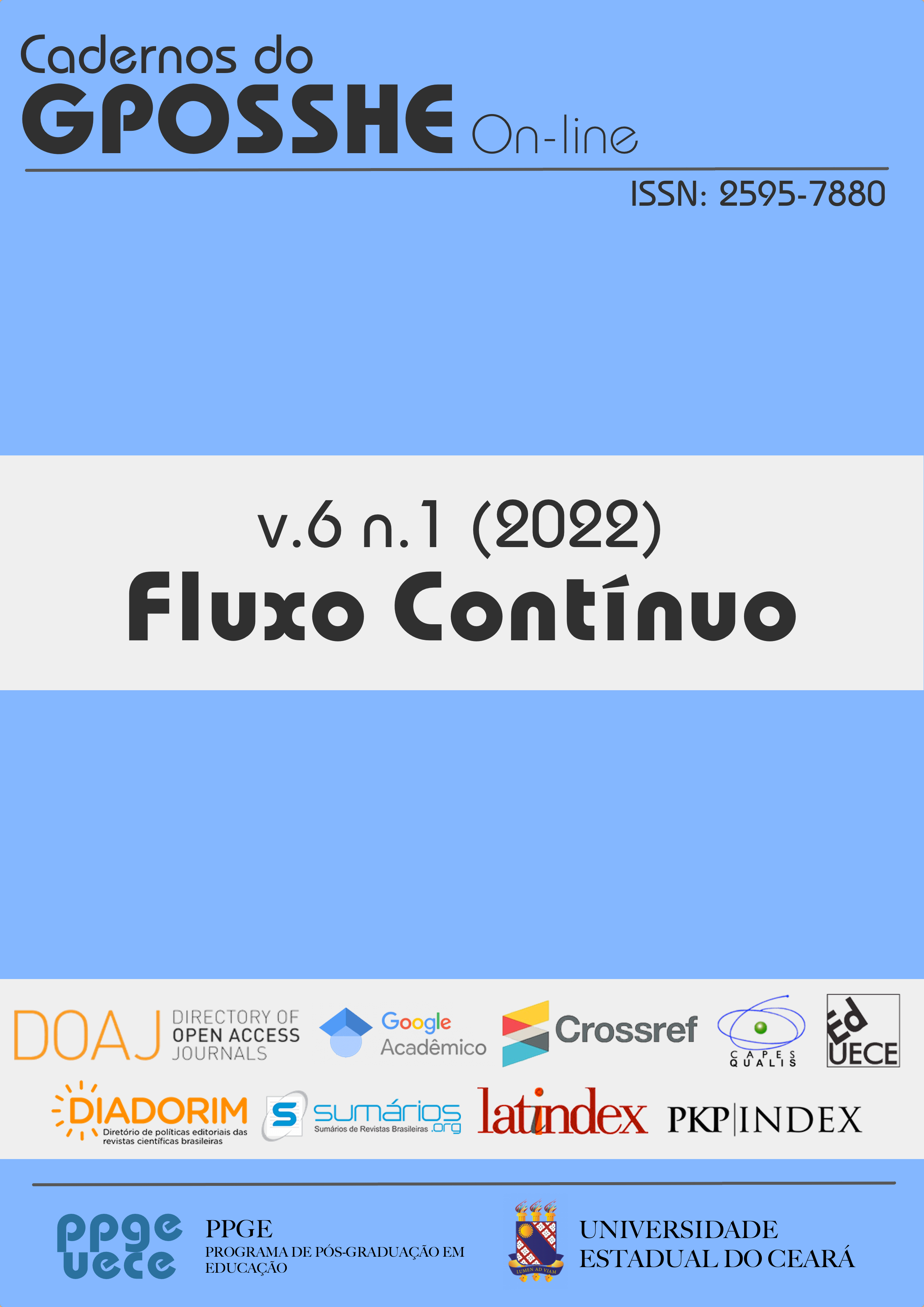O campo do Outro e o sistema capitalista
DOI:
https://doi.org/10.33241/cadernosdogposshe.v6i1.8234Keywords:
Outro, Foucault, Honneth, Marx, SteinAbstract
In this article we start with the thoughts of Foucault and Saflate, to define how power and exploitation take place within society. Together, we analyze certain concepts of Honneth where he analyzes why certain social reforms that started to happen, ended up being dismantled in the neoliberal model. We work with Foucault's concept of Homo Economicus, which implies the birth of biopolitics. A form of power based on the figure of the Indebted Man, by Lazzarato, will emerge.
We will work on the psychoanalytic concept of the Lacanian Other, showing how it derives from the Freudian Kultur concept that aims to encompass all aspects of the social field. From the thought of Freud, Lacan and Stein, we will configure this Other as a kind of metaphysical entity - the concept of social group above the mere subject that composes it.
We will relate this to the concept of social being, which Marx works, to conceptualize how man needs and fulfills himself only within the social sphere. Stein traces the main points of the Lacanian theory that replaces the biological basis with the signifying chain of language. Zizek demonstrates the relationship between the psychoanalytic symptom and Marxist concepts. Also the repression of the exploitative capitalist model, which Zizek demonstrates clashes with the vision of equality and democracy that capitalism wants to convey.
Finally, we will conclude by demonstrating that the concept of the good of society is an abstract concept - as well as the Lacanian concept of the Other - that allows controlling and manipulating the whole of society through its use. This means that the capitalist system, which evolved into the neoliberal system, represents a dominant class that uses this abstract element, the Other, to exploit another class, even though this is the majority.
Metrics
References
CASTILHO, Pedro Teixeira. (2009) A palavra através do espelho. Estilos da Clínica, 2009, Vol. XlV, n° 26, 174-191 São Paulo, 2009.
DIAS, Sandra. (2019) O sexual: a inibição, corpo e sintoma. Trabalho apresentado no IV Congresso Internacional de Convergência, movimento lacaniano para a psicanálise freudiana em 8-10 maio de 2009, Buenos Aires. Disponível em: < http://www.espacopsicanalise.com.br/significante.html>
FOUCAULT, Michel. (2008) Nascimento da biopolítica. Curso dado no Collège de France (1978-1979). São Paulo: Martins Fontes, 2008.
FREUD, Sigmund. (1996a). O mal-estar na civilização. In S. Freud. Edição Standard das Obras Completas de Sigmund Freud (vol. 21). Rio de Janeiro: Imago. (Obra original publicada em 1930).
_______, Sigmund. (1996b). O futuro de uma ilusão. In S. Freud. Edição Standard das Obras Completas de Sigmund Freud (vol. 21). Rio de Janeiro: Imago. (Obra original publicada em 1927).
HONNETH, Axel. (2016) O direito da liberdade. 1ª ed. Eletrônica, SP. Martins Fontes - selo Martins, 2016, 648 p.
LACAN, Jacques. (1957) Entretien avec Jacques Lacan pour Madeleine Chapsal paru dans L'Express. L'Express 31 mai 1957. N° 310.
LAZZARATO, Maurizio. (2015) O “homem endividado” e o “deus” capital: uma dependência do nascimento à morte. Entrevista especial com Maurizio Lazzarato.
Junho 2015.
LUKÁCS, Georg. (1981) Per l’ontologia dell’essere sociale. Traduzione di Alberto Scarponi. v. II. Roma: Riuniti, 1981.
MARX, Karl. (2011) Grundrisse. São Paulo: Boitempo, 2011.
______, Karl. (2012a) O capital: livro 1, volume 1. São Paulo: Civilização Brasileira, 2012a.
______, Karl. (2012b) O capital: livro 1, volume 2. São Paulo: Civilização Brasileira, 2012b.
_____, Karl. ENGELS, Friedrich. (1998) Manifesto do Partido Comunista. Dossiê manifesto comunista. Manifest der Kommunistischen Partei. Estudos avançados vol.12 no.34 São Paulo Sept. /Dec. 1998(Obra original publicada em 1848).
SAFATLE, Vladimir. (2020) Nascimento da biopolítica: Comentário sobre o livro póstumo de Michael Foucault resultante de um curso de 1978-1979. 2 de maio de 2020.
Disponível em: <https://www.brasil247.com/blog/nascimento-da-biopolitica>
SILVA, Magali Milene. (2012) Freud e a atualidade de O mal-estar na cultura. Analytica, São João del Rei, v. 1, n. 1, p. 45-72, dez. 2012.
Disponível em: <http://pepsic.bvsalud.org/scielo.php?script=sci_arttext&pid=S2316-51972012000100004&lng=pt&nrm=iso>
STEIN, Ernildo. (2012) Analítica existencial e psicanálise: Freud, Binswanger, Lacan, Boss-conferências. Ed. Unijuí, Ijuí, 2012.
VIDAL, Paulo Eduardo Viana Vidal. BASTOS, Angélica. (2017) O passo do Parmênides. Ágora (Rio J.) vol.20 no.1 Rio de Janeiro Jan./Mar. 2017.
Disponível em: <http://dx.doi.org/10.1590/S1516-14982017001001>
ZIZEK, Slavoj. (1996) Um mapa da ideologia / Theodor W. Adorno... [et. al. J; organização Slavoj Zizek; tradução Vera Ribeiro. - Rio de Janeiro: Contraponto, 1996.
Downloads
Published
How to Cite
Issue
Section
License
Copyright (c) 2022 GPOSSHE notebooks

This work is licensed under a Creative Commons Attribution-NonCommercial-NoDerivatives 4.0 International License.
Os autores possuem direitos autorais, sem restrição, aos seus textos. Os Cadernos do GPOSSHE On-line permitem ao autor os direitos de publicação. Os conceitos emitidos em artigos assinados são de absoluta e exclusiva responsabilidade de seus autores.
Todo o conteúdo da Revista Cadernos Gposshe On-Line é aberto para acesso público, propiciando maior visibilidade, alcance e disseminação dos trabalhos publicados.
























